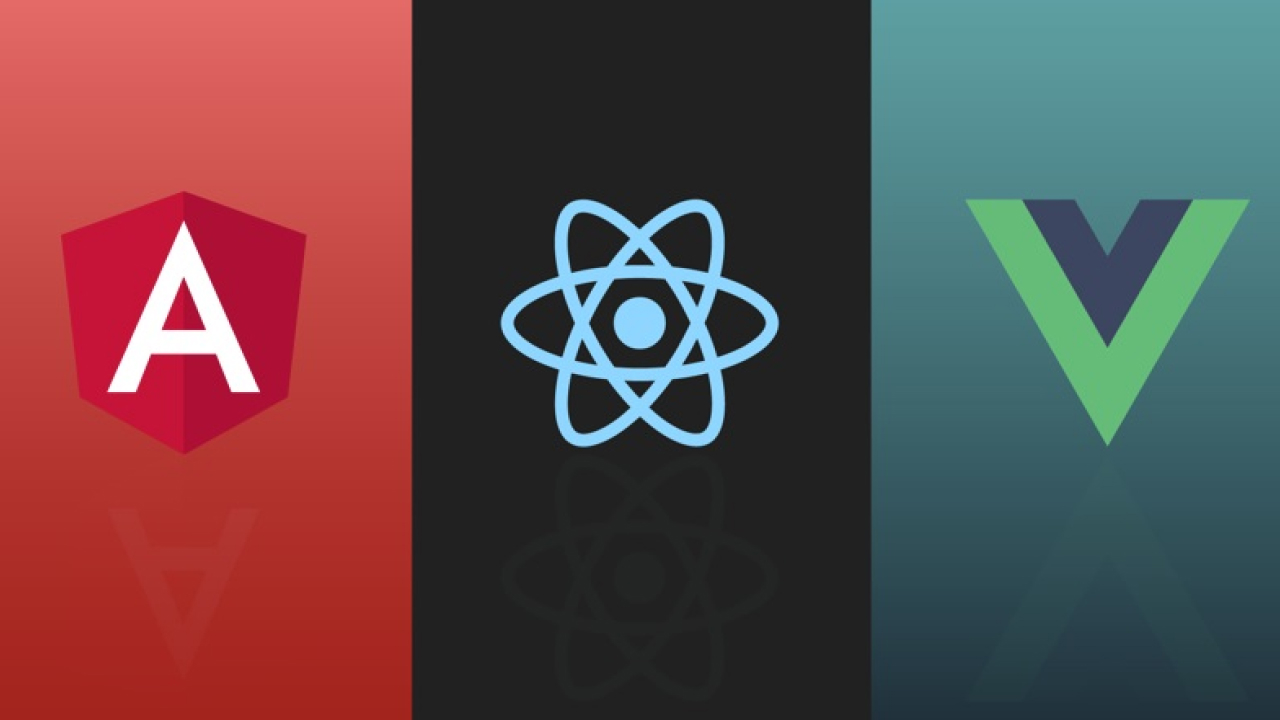Nobody would argue that we live in the data-driven century. All aspects of our social life and business activity are technology-dependent. Organizations move forward, relying on petabytes of data generated by millions of digital devices. At the same time, data as such remains sensitive to who uses it and how. Software development is no exception in this regard.
Fortunately, cloud-based solutions provide reliable storage and sustainable flows of digital data. Powerful SaaS platforms and progressive development methodologies allow IT teams to progress with fewer risks and errors. Azure services from Microsoft represent an advanced cloud platform, while the DevOps model provides an effective development approach. However, the availability of such an advanced synergetic solution as Azure DevOps alone can hardly guarantee excellent performance to any organization.
There should be someone capable of getting the best from the solution in terms of management and engineering. Someone who combines development expertise with skills in IT infrastructure operations. The roles and responsibilities of Azure DevOps engineers are worth understanding, therefore. What Azure DevOps engineers are and how to acquire such expertise constitute the content of the present article.
What is Azure DevOps?
Microsoft created Azure DevOps to overcome the IT silos associated with traditional SDLCs. This SaaS solution offers a one-fits-all DevOps toolchain for trouble-free software development and deployment. The platform’s functional diversity orchestrates any sort of DevOps routine, disregarding the applied language, operating system, or hardware infrastructure. In addition to numerous third-party tools compatible with the platform, Azure DevOps provides a range of native services covering almost anything you may need to create software.
Azure Boards, Azure Pipelines, Azure Artifacts, AzureRepos, and Azure Test Plans constitute a set of technology-agnostic services capable of handling end-to-end DevOps workflows of any complexity. Such ample DevOps capabilities imply quite intensive training to acquire all features and functions of the platform. Even though all Azure services are easy-to-learn with a ton of tutorials available on the official website, a random person without specific skills can hardly become an Azure DevOps engineer just on the go. Besides, understanding the Azure DevOps engineer roles and responsibilities is required to realize how such experts can contribute to your development process.
How does Microsoft Azure work?
This video provides a comprehensive overview of the Microsoft Azure cloud platform, delving into the technological processes and mechanisms that operate within the system. It offers an insightful exploration into the workings of Azure, giving viewers a clearer picture of how this sophisticated cloud infrastructure functions.
DevOps Engineer Responsibilities
The integration of development routines with operations when managing the company’s IT infrastructure is the primary duty of a DevOps engineer if described in brief. A DevOps engineer should have a solid technical background to understand what is going on across the entire production pipeline. Besides, multitasking is a must to coordinate the activities of diverse departments. The following responsibilities provide insight into what the Azure DevOps engineer role implies.
- Creating documentation to specify the back-end features of the app under development;
- Analyzing the technologies in use to plan possible improvements and upgrades;
- Participating in code development, app deployment, and infrastructure maintenance;
- Reviewing and validating code delivered by programmers;
- Taking part in project planning to share knowledge about system risks, infrastructure capabilities, and cost-vs-revenue ratios;
- Providing inputs for operation requirements regarding each particular release;
- Identifying better testing practices to minimize errors during deployments;
- Setting up automated updates to be deployed into production via configuration management software;
- Applying automation to processes wherever possible;
- Performing routine maintenance and troubleshooting to avoid bottlenecks in the production environment;
- Developing recommendations on how to boost performance with possible modifications and alternative solutions;
- Assisting in the operative management of staff according to the best DevOps practices;
- Mentoring team members when utilizing continuous CD/CI capabilities of the Azure DevOps platform;
- Monitoring customer experience through corresponding metrics and indicators;
As we see, the Azure DevOps engineer role implies a combination of technical and management responsibilities. To successfully wear a technician hat and managerial shoes simultaneously, such a person should have excellent communication skills. Nothing but continuous intra-company communication helps achieve a collaborative way of doing things in DevOps.
Azure DevOps Engineer Job Description
The list of the Azure DevOps engineer responsibilities can give a general idea about the job such a specialist is to do at a company. However, it is better to generalize the duties to define a more concise job description. What is the primary objective of all the activities that an Azure DevOps engineer performs? Facilitating the project’s success at every stage, from planning to post-release maintenance, can be the most comprehensive purpose of the job
Improving staff productivity by utilizing the rich capabilities of the Azure DevOps platform can be another possible definition. How to achieve this, keeping in mind the variety of Azure DevOps services? It becomes possible with the vastest possible integration of all technical resources across the pipeline to cover the SDLC in its entirety with corresponding functions of the Azure platform. Fortunately, the platform’s functionality leaves no development stage untouched within an SDLC: planning, building, testing, deployment, and maintenance are all supported.
Suppose a company is just on the way to a cultural shift to DevOps. In that case, an Azure DevOps engineer should continuously inform the staff about the available process automation tools to make such a transition successful. Acting like a playing coach, a DevOps engineer assists all team members in systematic training to acquire the Azure platform’s automation capabilities. Nobody but a DevOps engineer is in charge of detecting productivity gaps that affect KPIs and deteriorate customer satisfaction. Hence, an Azure DevOps engineer's job comes to achieving the DevOps approach's primary goal: shortening time-to-market with continuous quality improvement.
Essential Skills of an Azure DevOps Engineer
A combination of soft and hard skills is inherent in the Azure DevOps engineer role. The ones listed below form an ideal picture of such a specialist. At the same time, any generalized character is based on real-life individuals whose hands-on experience and traits allow making generalizations.
Communication
Introverts, by their nature, face more difficulties when performing DevOps engineer responsibilities than extroverts do, most probably. This is because continuous communication across the entire pipeline requires interactions with a very motley audience. Strong verbal and written communication skills should be backed by psychological resilience, therefore. Talking to people all day long without losing the thread is challenging and exhausting. If you are not ready for such a commitment, the DevOps engineer role is not for you.
Adaptability
The Azure cloud is never petrified since its services keep continuously evolving. Regular updates of the platform make Azure engineers always stay alert. Finding out that your infrastructure has become outdated is hardly an enjoyable revelation. Keeping abreast when using distributed resources to let your data freely circulate within the pipeline implies moving out of your comfort zone. DevOps engineers must be forever on their toes regarding the latest technical developments in the industry.
Coding skills
Many agree that there are two paths to DevOps engineering: a programmer with knowledge of IT operations or a sysadmin with coding skills. What unites both variants is an understanding of how to build software applications. Understanding, in this context, implies acquiring several scripting languages such as JavaScript, Groovy, Bash, Perl, and the like. Skills in PHP, Python, Java, C#, or other fundamental development technologies won’t hurt as well. Coding is a must for a DevOps engineer. Otherwise, no validation of the programmers’ code is possible.
Process-centricity
Causes and results are important, of course, but they go through procedures. A DevOps engineer is the one who understands the process, the one who answers to the “how?” question rather than to “why?” and “for what?”. It is crucial to grasp how things go as such before finding a solution to fix somethings that went wrong. Being fully immersed in the process is the mission of DevOps engineers.
Project management
Some may find it counterintuitive that DevOps engineers should acquire project management capabilities. But this is not about taking away bread from project managers; this is about understanding how to develop projects, build schedules, and force the team to follow deadlines. Project management is another process in which the most process-oriented team member - a DevOps engineer - should have expertise.
Containers
Containers provide a decent packaging method to separate a product under development from the environment. Modern applications tend to be more and more sophisticated in their structure. Containers facilitate the modular design of complex software solutions that otherwise would be too cumbersome to create. DevOps engineers should be fluent with containers to assist the entire team in streamlining the work.
Data security
Data needs protection, whether it belongs to an on-premise architecture or a cloud. DevOps engineers should be familiar with data security protocols and methodologies. Data in such a context goes far beyond particular files. Applications and infrastructures also belong to what should be securely protected by DevOps engineers. Preventive measures and disaster recovery constitute the data security skills required.
Decision-making
The development process, as such, is resource-dependent. DevOps engineers are responsible for allocating resources in a broad sense: computing power, storage, bandwidth, workforce, and so on. They should know where to get the resources and how to distribute them across the entire pipeline. More than being aware of the available resources is required, however. It is crucial to make the right decisions to achieve cost-effective workflows.
Configuration management
Jara, GitLab, Jenkins, Git, and other configuration management tools must be mastered by DevOps engineers to perfection. No experience in deployments and integrations goes well without those tools. Moreover, DevOps engineers must be able to assist all other team members with training in the configuration process. Database administration (MySQL, Mongo, and the like) requires strong configuration skills from DevOps engineers as well.
Networking
Optimization of connectivity via networks can never be excessive when you work in a cloud environment. Reducing the number of networks (within reasonable limits) is what correct network administration means. DevOps engineers satisfy the users’ demand for simpler ways of accessing networks. Setting up cloud networks for better responsiveness is another commitment of DevOps engineers in utilizing the Azure cloud capabilities.
Virtualization
Any software production environment requires one or more virtual machines to simulate various IT components. Virtualization allows developers to optimize their hardware facilities in terms of number and efficiency. The extent of the production environment virtualization determines how scalable the environment is. Besides, virtual resources are fault-tolerant. The higher the competence of a DevOps engineer in virtual machines, the closer the organization is to serverless computing.
Leadership
A DevOps engineer is a team leader often. It is so because DevOps engineers are a focal point of intra-team communication. To be a hub for various opinions, suggestions, and requests is demanding and stressful. Leaving your personal comfort zone is not enough to be a true leader, however. A leader must be able to inspire others for endeavors. Listening is a critical skill for leaders when they encourage peers to brainstorm to get new creative ideas or forecast future problems. A DevOps engineer without leadership is possible but barely successful.
Evolving with the Cloud: The Future of the DevOps Engineer Role
As cloud technologies continue to advance, the role of DevOps engineers is also evolving, highlighting the importance of adaptability and continuous learning within DevOps responsibilities. In the Azure ecosystem, this means staying ahead of the latest cloud innovations and integrating them into the development lifecycle to enhance operational efficiency and product quality.
The future role of DevOps engineers will increasingly involve leveraging AI and machine learning to automate more complex tasks, predict system issues before they arise, and provide more insightful data analysis. This shift not only redefines DevOps roles and responsibilities but also emphasizes the need for a proactive approach to technology adoption and skills development. By anticipating changes and preparing to integrate new methodologies, Azure DevOps engineers can ensure that their teams remain at the forefront of software development, ready to tackle the challenges of tomorrow's IT landscape.Conclusion
The Azure DevOps platform offers numerous opportunities to adopt the most efficient development methodology with an advanced end-to-end toolchain. Many organizations building software within traditional waterfall SDLCs should reconsider their workflows to avoid swallowing dust behind more progressively-thinking rivals. Azure DevOps engineers play a critical role in establishing a more feasible development pipeline to achieve faster releases with better quality. The above-mentioned roles and responsibilities of Azure DevOps engineers help us understand how such specialists contribute to the development process.
Bringing up your in-house Azure DevOps engineer is resource-consuming, to put it mildly. Hiring a ready-to-work one sounds more reasonable, being difficult to achieve at the same time: professional Azure DevOps experts don’t roll on the road. The best way seems to be finding a reliable workforce provider capable of introducing an experienced Azure DevOps consultant who can boost your productivity while appreciating your privacy and values.
Contact our experts to satisfy your DevOps aspirations without redundant expenses and futile efforts. A highly individual approach to each customer is our bias.
F.A.Q
Azure DevOps is a SaaS solution from Microsoft that offers a comprehensive DevOps toolchain for seamless software development and deployment. It provides services like Azure Boards, Azure Pipelines, Azure Artifacts, AzureRepos, and Azure Test Plans, enabling end-to-end DevOps workflows.
An Azure DevOps Engineer is responsible for integrating development and operations, creating documentation, analyzing technologies, participating in code development, reviewing code, planning projects, automating processes, performing maintenance, and mentoring team members.
Essential skills for an Azure DevOps Engineer include communication, adaptability, coding, process-centricity, project management, knowledge of containers, data security, decision-making, configuration management, networking, virtualization, and leadership.
An Azure DevOps Engineer facilitates project success by improving staff productivity, integrating all technical resources, informing the staff about process automation tools, detecting productivity gaps, and achieving the DevOps goal of shortening time-to-market with continuous quality improvement.
Coding knowledge is crucial for an Azure DevOps Engineer because it allows them to participate in code development, validate code delivered by programmers, and understand the technical aspects of the software applications being developed.
Configuration management is significant because it involves using tools like Jara, GitLab, Jenkins, and Git to manage code deployments and integrations. It ensures that all team members are trained in the configuration process and that database administration is effectively handled.
The role of a DevOps Engineer is evolving to include leveraging AI and machine learning for automating tasks, predicting system issues, and providing insightful data analysis. This proactive approach to technology adoption and skills development ensures that teams remain at the forefront of software development.



